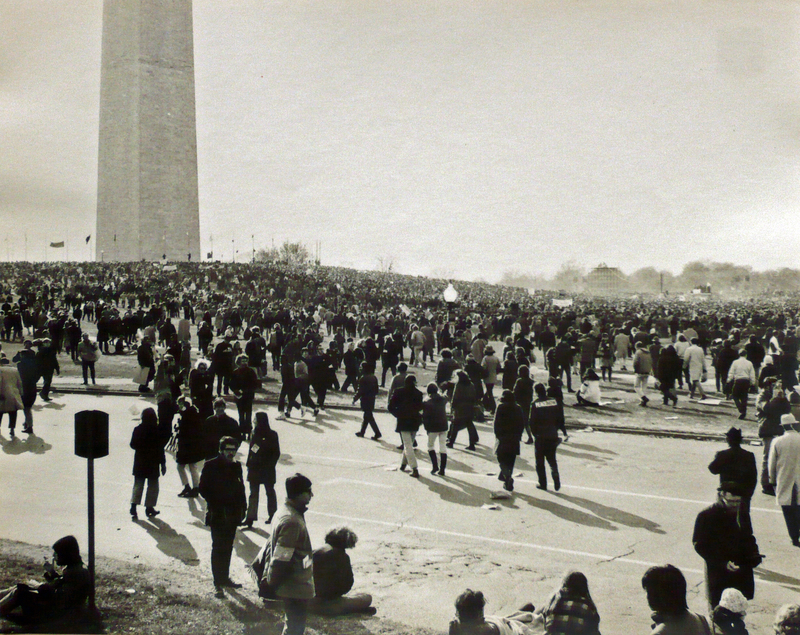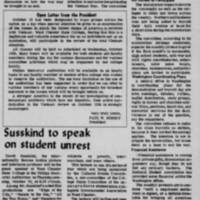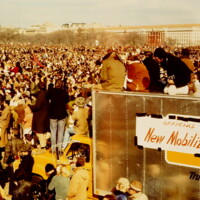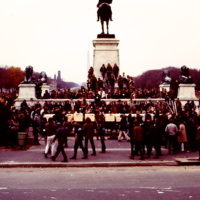Moratorium to End the War in Vietnam
By Mackenzie Moore
First Moratorium
At the beginning of 1969, an increase in anti-war sentiment throughout the United States, coupled with Richard M. Nixon’s presidential inauguration, inspired political activist Jerome Grossman to call for a nationwide protest if American troops did not withdraw from the Vietnam War by the beginning of October. The Vietnam Moratorium Committee, created by Grossman, Sam Brown, and other anti-war activists, sponsored the first and second Moratorium to End the Vietnam War. The first moratorium, held on October 15, 1969, resulted in dozens of anti-war protests across cities and college campuses nationwide. The largest demonstration occurred in Boston, with an estimated 100,000 participants.
Members of the Vietnam Moratorium Committee advertised its idea to schools and universities across the United States. West Chester University’s newspaper, Quad Angles, discussed the Vietnam War moratorium in a newspaper article published on October 14, 1969. It states that the moratorium hopes to involve the local community, including “colleges in cities and towns across the country.” West Chester students called for a temporary suspension of classes in favor of a discussion about how the war may be brought to an end.
Second Moratorium
The Vietnam Moratorium Committee organized the second nationwide Moratorium to End the Vietnam War for November 15, 1969. The second anti-war Moratorium attracted an estimated 500,000 citizens to Washington, D.C, to participate in a demonstration believed to be the largest anti-war protest in United States history. In his 2022 oral history interview, Charles Hardy, professor emeritus at West Chester University, recalled his experience traveling to Washington, D.C to participate in the second Moratorium to End the Vietnam War as a senior in high school. After publishing an article about the protest in his high school’s newspaper, Hardy decided to travel from New York to Washington, D.C to participate in the second moratorium. He described the wide variety of people at the protest as a representation of the “cross-section of America,” because the anti-war movement included “grandmothers,” “veterans,” and “people who are just furious at the loss of life, loss of American lives and loss of Vietnamese lives.”
The Moratorium's Impacts
The Moratorium to End the Vietnam War in the United States caused an increase of national attention to the anti-war movement. America’s anti-war moratorium influenced the creation of anti-war moratoriums worldwide. Inspired by America’s Moratorium to End the Vietnam War, anti-war activists in Australia founded the Vietnam Moratorium Campaign in November, 1969. The first moratorium in Australia occurred on May 8 and 9, 1970, in response to selective conscription laws and Australia’s involvement in the Vietnam War.





